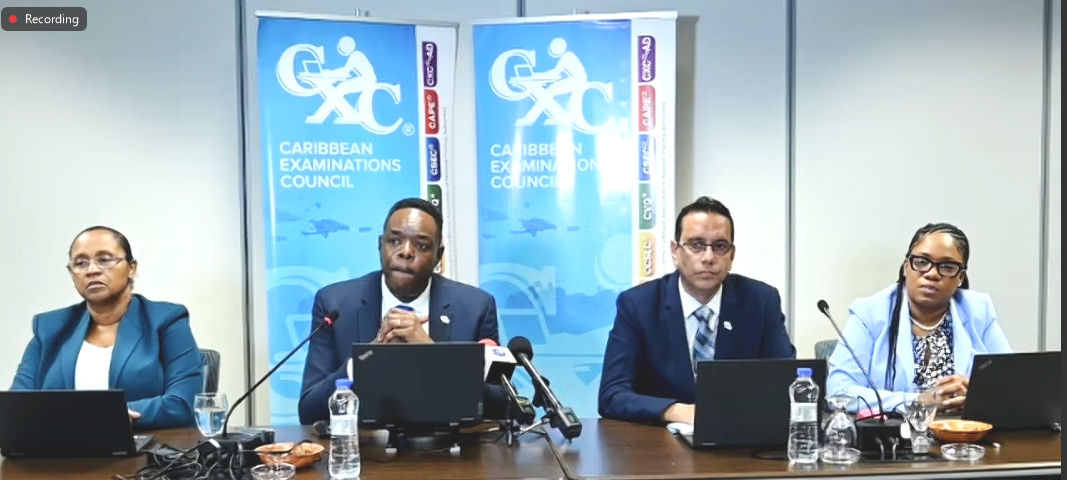-introducing new generation of programmes
The Caribbean Examina-tions Council (CXC) yesterday reversed the suspension of several technical and vocational subjects.
The decision was made after a meeting with ministers of education from across the Caribbean region, where they discussed the regional concerns arising from the contemplation of syllabus suspension for these subjects.
The subjects initially considered for suspension were Agricultural Science (Double Award), Mechani-cal Engineering Techno-logy (CSEC), Green Engi-neering, and Electrical and Electronic Engineering (CAPE). The announcement was made by CXC Registrar/CEO Wayne Wesley during a virtual press conference.
According to Wesley, the ministers of education were forthright in their positions and pledged their support for CXC. The agreed positions emerging from the meeting include the continuation of the four subjects, as well as the development of a collective Regional Marketing thrust to promote the priority subject areas in STEM and STEAM education and climate smart agriculture.
According to a press release sent out by the Ministry of Education (MoE) yesterday afternoon, the decision was welcomed by Education Minister Priya Manickchand, who had strongly opposed the initial move to suspend the subjects. Manickchand emphasized that Guyana’s government does not support the removal of these subjects, as they are crucial for the country’s rapid growth, particularly in the oil, gas, and agriculture sectors, the release stated.
Also announced at the press conference was CXC’s decision to roll out a new generation of science and technology programmes. Some of them, Wesley said, are not yet at the desired demand but governments and the council will partner to build demand.
“We recognize the importance of these subjects in promoting economic growth and sustainable development in the region,” Wesley said. “Therefore, we will work in partnership with our stakeholders to build demand for these new programmes.”
Among the new programmes are Entrepreneurship, Performing Arts, Physical Education and Sport, Tourism, Animation and Game Design, Logistics and Supply Chain Operations, Digital Media and Financial Services.
The meeting also highlighted some of the challenges faced by schools in delivering the previously suspended subjects, including the availability of teachers, labs, and other equipment. CXC’s Deputy CEO, Eduardo Ali, noted that some of the concerns raised by stakeholders across the region included the lack of practical experience for students due to inadequate labs and facilities, lack of qualified teaching professionals, and outdated plant and equipment.
Ali also provided an overview of the enrolment numbers for the four subjects, noting that there had been a decline in some cases. He highlighted that for mechanical engineering technology, for instance, the numbers were below 2400 across the region, with some territories having no students registered, at all.
It was noted that despite these challenges CXC is committed to ensuring that students have access to career pathways in these subjects. Ali noted that labour market information and intelligence will be critical in charting a path for students to aspire and want to see a career path that allows them to self-actualize.
The council is also working on developing marketing strategies to promote these subjects to students and schools across the region. According to Wesley, CXC will conduct teacher orientation workshops to sensitize teachers and schools about the new generation subjects and what will be required for integration.
CXC’s decision to revisit the potential suspension came after a meeting with education ministers from participating countries, including Anguilla, Antigua and Barbuda, Barbados, Belize, British Virgin Islands, Cayman Islands, Dominica, Grenada, Guyana, Jamaica, Montserrat, St. Kitts and Nevis, St. Lucia, St. Vincent and the Grenadines, Trinidad and Tobago, and Turks and Caicos Islands.






